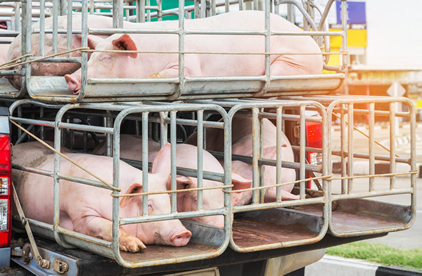Livestock auction ban lifted
Livestock auction ban lifted vuyelwanAlthough the blanket ban on livestock auctions has been lifted, strict measures to prevent new foot and mouth outbreaks will be enforced.
 The Department of Agriculture, Land Reform and Rural Development has unbanned the auctioning of livestock.
The Department of Agriculture, Land Reform and Rural Development has unbanned the auctioning of livestock.
This was announced by the department’s Minister Thoko Didiza.
“The decision was taken after clinical assessments were conducted on the foot and mouth disease outbreak that affected livestock in the Molemole District in Limpopo since November 2019,” she says.
About the outbreak
According to the Minister, initial investigations revealed that the outbreak could be linked to four auctions, held at two auction premises in September and October 2019.
“To prevent the outbreak from spreading further and allow the veterinary officials to determine the extent of the spread, an intensive system of tracking and tracing livestock movements and locations was put in place,” the Minister explained.
The application of this system needed strict isolation measures, which included a temporary ban on gatherings of cloven-hoofed animals nationwide.
Minister Didiza says approximately 160 properties were identified with links to the auctions. These premises had to be visited and placed under isolation, with clinical inspections conducted and samples collected as part of the investigation to determine exposure to the infection.
“Good progress has been made and the precautionary isolation has been lifted on more than 90 of these properties. In total, 18 farms were identified where animals tested positive for the disease.”
“I am aware of the social and economic impact this decision had on livestock owners, traders and the general sector stakeholders. I want to reassure the nation that this decision was not taken lightly and was implemented as a disease control measure.”
She says authorities expect auctioneers and sellers to maintain the highest standards of animal health and buyers to undertake due diligence.
How to prevent new infections?
Do not move high-risk animals, that show signs of disease, animals from unknown origin or animals originating from known infected areas.
Only buy animals from known and proven sources.
Buyers must insist on a veterinary health declaration before animals are brought onto their farms.
Always place new arrivals in isolation until you can satisfy yourself of their health status.
The Minister says veterinary services are workng with affected farmers to find a way forward.
“Slaughter of cattle at specifically designated abattoirs has started, with additional measures in place to prevent any disease spread through materials such as heads, feet and offal,” she says.
Regardless of these developments, the Minister said the outbreak of the disease in the free zone cannot be declared as over yet, although it appears that the initial spread of the disease has been successfully contained.
Auctioning livestock
Livestock agents must be registered with the Agricultural Produce Agents Council (APAC), which is an agency of the department. It provides rules that agents need to comply with.
Agents who are already registered with APAC and are complaint with the rules in respect of livestock agents as published in Government Gazette 41473 Board Notice 28 of 2018, may proceed with auctions.
However, she says that all APAC certificates issued prior to 2 March 2018 have lapsed and renewal should be done on or before 30 March 2020.
Those who would like to register should email Francois@apacouncil.co.za or call 011 894 3680.